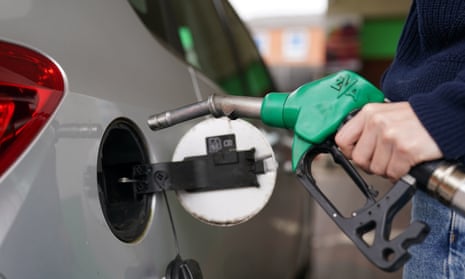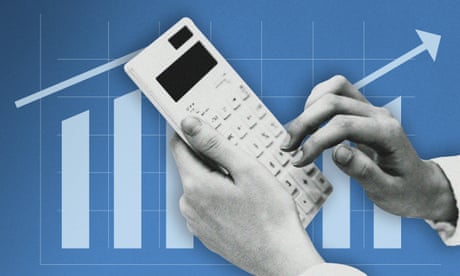
The City is expecting interest rates to fall sharply next year following news of a much bigger than expected fall in the UK’s annual inflation rate to 3.9% in November.
Despite the Bank of England’s insistence it is too early to contemplate reducing the cost of borrowing, the markets believe Threadneedle Street will deliver at least four interest rate cuts during 2024.
Share prices in London rallied strongly after cheaper fuel and less expensive food helped bring inflation from 4.6% in October to its lowest since September 2021. The FTSE 100 Index rose by around 1% to its highest level since May.
With the economy weakening in response to 14 successive interest rate rises between December 2021 and August 2023, analysts predicted the Bank would start easing its policy stance next spring.
Ed Monk, an associate director at Fidelity International, said: “Another significant drop in inflation in November only adds to the case that interest rates will fall sooner than expected. The Bank of England has been talking tough, but price rises appear on a rapid decline back towards the Bank’s target range and it may soon be that the risk for rate-setters is not under-tightening but over-tightening.”
Swap rates in the City’s money markets were signalling five quarter-point cuts, which would take them from 5.25% to 4% by the end of next year, bringing welcome relief to households and businesses that have seen their borrowing costs soar.
Kallum Pickering, of Berenberg Bank, said: “Although Bank of England policymakers are at pains to push back against growing rate cut bets for 2024 while inflation is still well above target, the direction of travel for prices now seems clear. Although all key inflation measures remain above the 2% year on year rate which the Bank aims for, the trend of the past few months suggests that inflationary pressures are fading about as quickly as they had emerged.”
The Office for National Statistics (ONS) said the decline in the annual inflation rate was the result of prices falling by 0.2% in November compared with a rise of 0.4% in the same month a year ago. Cheaper fuel was the main reason for the dip in the headline rate below 4% in November, with the average price of petrol falling by four pence a litre month on month.
The ONS said food prices were also rising more slowly than a year ago, singling out bread and cakes, which fell in price compared with the previous month. However, overall food prices rose by 0.3% month on month and are still up annually – by 9.2%, compared with a 10.1% rate in October.
The ONS also pointed out that the cost of food and non-alcoholic beverages had risen by about 27% in the past two years, compared with an increase of about 9% between November 2011 and November 2021.

Although the 3.9% figure remains at almost double the government’s 2% target, the latest fall means Rishi Sunak can say he has met his target of halving inflation in the course of 2023.
City forecasters had not expected a repeat of October’s sharp drop in inflation from 6.7%, and had pencilled in a decline to 4.4% in November. Core inflation – which strips out fuel, food, alcohol and tobacco – also fell sharply last month, with cheaper household goods and second-hand cars contributing to the drop from 5.7% to 5.1%.
The chancellor, Jeremy Hunt, said: “With inflation more than halved we are starting to remove inflationary pressures from the economy. But many families are still struggling with high prices so we will continue to prioritise measures that help with cost of living pressures.”
Rachel Reeves, the shadow chancellor, said: “Prices are still going up in the shops, household bills are rising and more than a million people face higher mortgage payments next year after the Conservatives crashed the economy.”
The ONS chief economist, Grant Fitzner, said: “Inflation eased again to its lowest annual rate for over two years, but prices remain substantially above what they were before the invasion of Ukraine.”
Ashley Webb, the UK economist at the consultancy Capital Economics, said the bigger-than-anticipated drop in inflation would fuel speculation in the financial markets that the Bank would start cutting interest rates in May next year.
“The most striking thing about these data was the sharp easing in domestic inflationary pressures. Some of the decline in core inflation from 5.7% in October to 5.1% in November was due to the global influence of core goods inflation, which slowed from 4.3% to 3.3%.
“But some of it was due to services inflation falling from 6.6% to 6.3%, which left it well below the 6.9% rate the Bank had projected at the time of its November monetary policy report.




